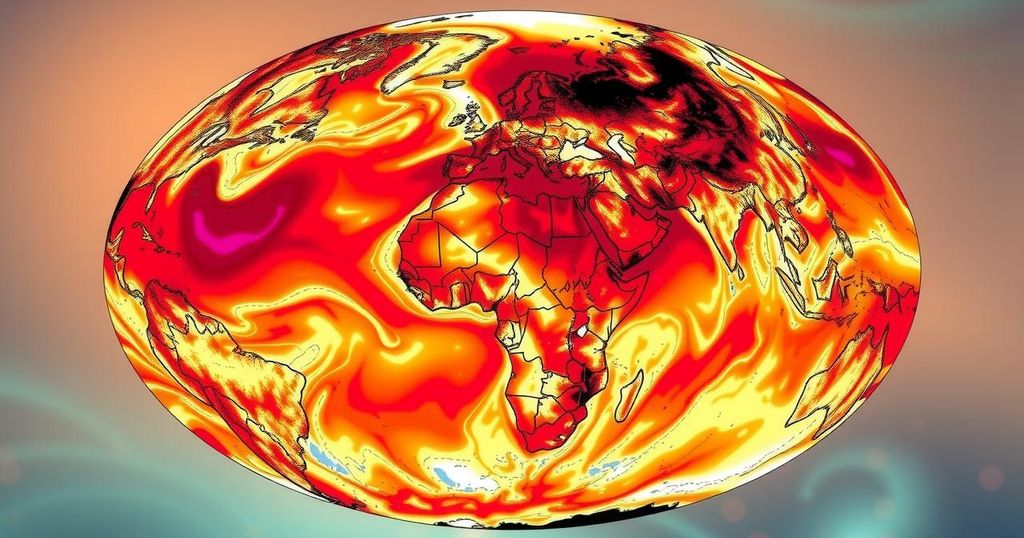Earth Experiences Second-Warmest November; 2024 Expected to be Hottest Year
According to a report by Copernicus, November 2024 is the second-warmest on record, indicating that 2024 is expected to be Earth’s hottest year ever. The average global temperature reached 14.10°C (57.38°F), up from last year’s average. The report underscores the critical need for urgent climate action to address rising temperatures and their dire consequences for ecosystems and humanity.
Earth recently recorded its second-warmest November, trailing only 2023, which indicates that 2024 is poised to become the hottest year on record, according to a report by the European climate service Copernicus. November 2024 saw an average global temperature of 14.10°C (57.38°F), representing a 0.14°C increase from the prior year. Jennifer Francis, a climate scientist, noted the significance of this temperature spike, emphasizing that November’s warmth surpassed previous averages significantly. Copernicus’ report predicts that 2024 will be the first year with an average temperature over 1.5°C (2.7°F) above pre-industrial levels, underscoring the urgent need for enhanced climate action to mitigate severe consequences, including natural disasters and biodiversity loss.
Despite the potential impacts of El Niño phenomena, scientists express confusion regarding consistent high temperatures, attributing them to reduced reflective sea ice and ocean heat absorption. Notably, the extent of Antarctic sea ice in November was recorded at 10% below average. Samantha Burgess, Copernicus’ Deputy Director, stressed that while the Paris Agreement’s thresholds are not breached, the situation demands immediate and ambitious climate efforts to prevent further ecological and agricultural disruptions. “The pace of warming is so fast that plants and animals cannot adapt as they always have during previous changes in the Earth’s climate,” Francis cautioned, emphasizing the challenges ahead for ecosystems and coastal populations.
The report highlights the ongoing global climate crisis, emphasizing the unprecedented levels of warmth experienced in 2024. Climate change, predominantly driven by the burning of fossil fuels, has caused significant shifts in temperature patterns globally. The findings indicate a worrying trend, with November 2024’s temperatures exceeding historical averages and threatening critical climate thresholds outlined in the Paris Agreement. The statements from notable climate scientists provide an alarming perspective on the implications of this warming, touching on species extinction and agricultural viability.
In conclusion, the record warmth recorded in November 2024 serves as a stark warning of the accelerating impacts of climate change. The predictions indicating 2024 will likely be the hottest year reflect the urgent need for comprehensive climate action to avert catastrophic environmental and social consequences. As global temperatures surge beyond manageable limits, it becomes essential for governments and communities to commit to ambitious climate strategies in order to safeguard ecosystems and human populations.
Original Source: apnews.com




Post Comment